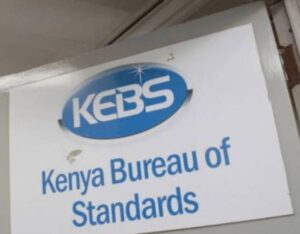
Trade and Investment CS Lee Kinyanjui. Photo | courtesy.
Kenya’s first-ever sub-national competitiveness metric shows that unequal infrastructure is hindering county development and investment.
The County Competitiveness Index (CCI) 2024, compiled by the Ministry of Investments, Trade and Industry (MITI) with support from TradeMark Africa and funded by the European Union, finds sharp disparities in roads, electricity and digital connectivity across the counties
In an era when counties vie to attract private capital, host tech hubs or grow exports, the strength of infrastructure is central. The CCI offers a new benchmark for investors and local governments. It reflects a global shift where governments link infrastructure readiness to ease of doing business at local level.
The index evaluates six pillars including infrastructure, governance, economic development human capital, business efficiency, climate and environment.
Counties such as Nairobi County, Kiambu County and Nakuru County topped the list thanks to reliable energy, modern roads and strong internet access
At the other end were counties including Wajir County, Tana River County, Marsabit County and Garissa County, which scored poorly due to weak transport, limited energy and poor broadband coverage.
Ministry of Investments, Trade and Industry Cabinet Secretary Lee Kinyanjui said “the report contains valuable insights that both the private sector and government can use to enhance the competitiveness of individual counties.”
For Kenya’s business services, manufacturing and tech sectors, county infrastructure readiness directly influences site-selection decisions. When one county lags behind in energy or transport, a competing county may capture the investor.
ALSO READ: FRC Orders All Real Estate Agents to Register by Nov 14
Regional investors such as logistics firms or renewable energy developers are increasingly using local indexes to screen opportunities. The CCI mirrors earlier global trends where state-level competitiveness indices influenced corporate decisions.
The Ministry of Investments, Trade and Industry launched the CCI in partnership with TradeMark Africa and the European Union as part of efforts to localise the “doing business” agenda and apply it to Kenya’s devolved counties. Devolution, introduced in Kenya in 2013, has meant counties manage local infrastructure, making their individual competitiveness increasingly relevant.
Going forward, counties that act on the CCI findings can improve infrastructure gaps and boost investor attraction. For example, targeted investment in digital connectivity and energy supply in lagging counties may unlock growth. For businesses and investors, the index signals which counties may present untapped potential.
The next step is monitoring how counties respond to the index and whether private capital flows follow the revised rankings. For citizens and customers, better infrastructure means faster services, more jobs and broader access to markets. For investors, it means clearer signals about where to allocate capital in Kenya’s competitive counties landscape.




